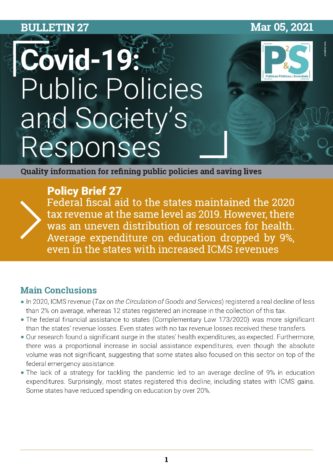Main Conclusions
- In 2020, ICMS revenue (Tax on the Circulation of Goods and Services) registered a real decline of less than 2% on average, whereas 12 states registered an increase in the collection of this tax.
- The federal financial assistance to states (Complementary Law 173/2020) was more significant than the states’ revenue losses. Even states with no tax revenue losses received these transfers.
- Our research found a significant surge in the states’ health expenditures, as expected. Furthermore, there was a proportional increase in social assistance expenditures, even though the absolute volume was not significant, suggesting that some states also focused on this sector on top of the federal emergency assistance.
- The lack of a strategy for tackling the pandemic led to an average decline of 9% in education expenditures. Surprisingly, most states registered this decline, including states with ICMS gains. Some states have reduced spending on education by over 20%.
Team responsible for Policy Brief No 27
Consultants
- Ursula Dias Peres (USP-EACH, CEM)
- Fábio Pereira dos Santos (São Paulo City Council Technician)


